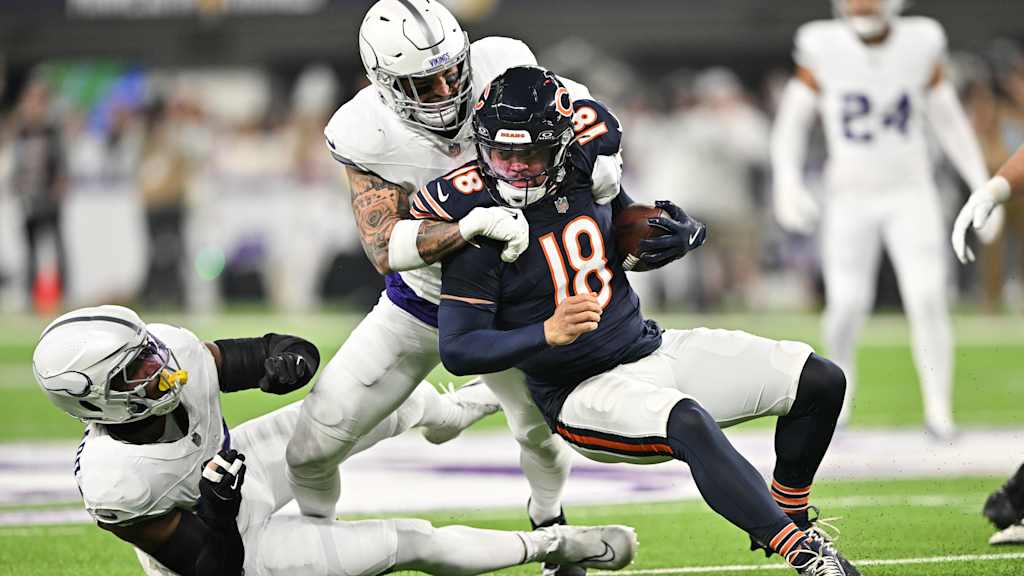Caleb Williams, the Chicago Bears quarterback, has found himself in the spotlight not just for his physical attributes and skill set, but also for the mental challenges that accompany an eight-game losing streak. The pressure of the NFL is immense, and for a young player like Williams, managing expectations while maintaining focus on performance is crucial.
In conversations, Williams acknowledges the gravity of the situation. “I know what people are saying,” he admits. “This isn’t just football; it’s a mental game. When things aren’t going well, you have to dig deeper than just physical abilities.” These words encapsulate the dual struggle he faces—maintaining his confidence while helping turn a sinking ship around.
The Bears’ eight-game losing streak has highlighted the importance of mental resilience in professional football. Every week, Williams steps onto the field under the weight of expectations—from fans, teammates, and the media. This scrutiny can amplify the pressure, making it essential for him to cultivate a strong mental game. He understands that maintaining a positive mindset is as imperative as improving his technical skills.
During this tumultuous stretch, Williams confides that he leans heavily on routines and rituals designed to bolster his mental state. Visualization, meditation, and sports psychology techniques have become integral to his preparation. He often visualizes successful plays, focusing on executing passes and leading his team. Imagining success enables him to build a mental fortress against the barrage of negativity that often accompanies losing streaks.
Moreover, he studies film not only to analyze his mechanics and decision-making but also to learn from past mistakes without allowing them to haunt him. This reflective practice helps Williams to foster a growth mindset. “I try to view each game as a learning opportunity,” he explains. “Mistakes are part of the game; it’s how you respond that counts.” This perspective is vital in an environment where past failures can easily lead to self-doubt and anxiety.
To navigate through these challenges, Williams also relies on support systems, both from his teammates and coaching staff. Strong locker room dynamics can serve as a buffer against the external pressures of the NFL. In conversations with his teammates, he finds reassurance and camaraderie—reminders that they are all in this battle together. “We’re all fighting for each other,” he says. “It’s important to lean on one another when times get tough.”
Despite the losing streak, Caleb Williams has also focused on the positive aspects of being a leader. He recognizes that how he carries himself in times of adversity sets the tone for the entire team. “Leadership is about how you respond to challenges,” he asserts. “I have to show my teammates that I believe we can turn this around.” By keeping a steady demeanor, even in loss, he aims to inspire his teammates to rally around a common goal: overcoming adversity and shifting the narrative surrounding the Bears.
In the broader context of his career, the experience of dealing with a losing streak could serve as a crucible, shaping Williams into a more resilient player. While an eight-game losing streak is challenging, it can foster growth and development. It serves as a valuable lesson in handling pressure and expectations, critical aspects of any successful NFL career.
In conclusion, Caleb Williams exemplifies the mental fortitude necessary to navigate the treacherous waters of an NFL losing streak. By embracing learning, relying on support systems, and maintaining a growth mindset, he is setting the foundation for both personal and team success. In the face of adversity, Williams showcases that the mental game is just as vital as the physical, and with each passing game, he is learning to become not just a better player, but a stronger leader.
